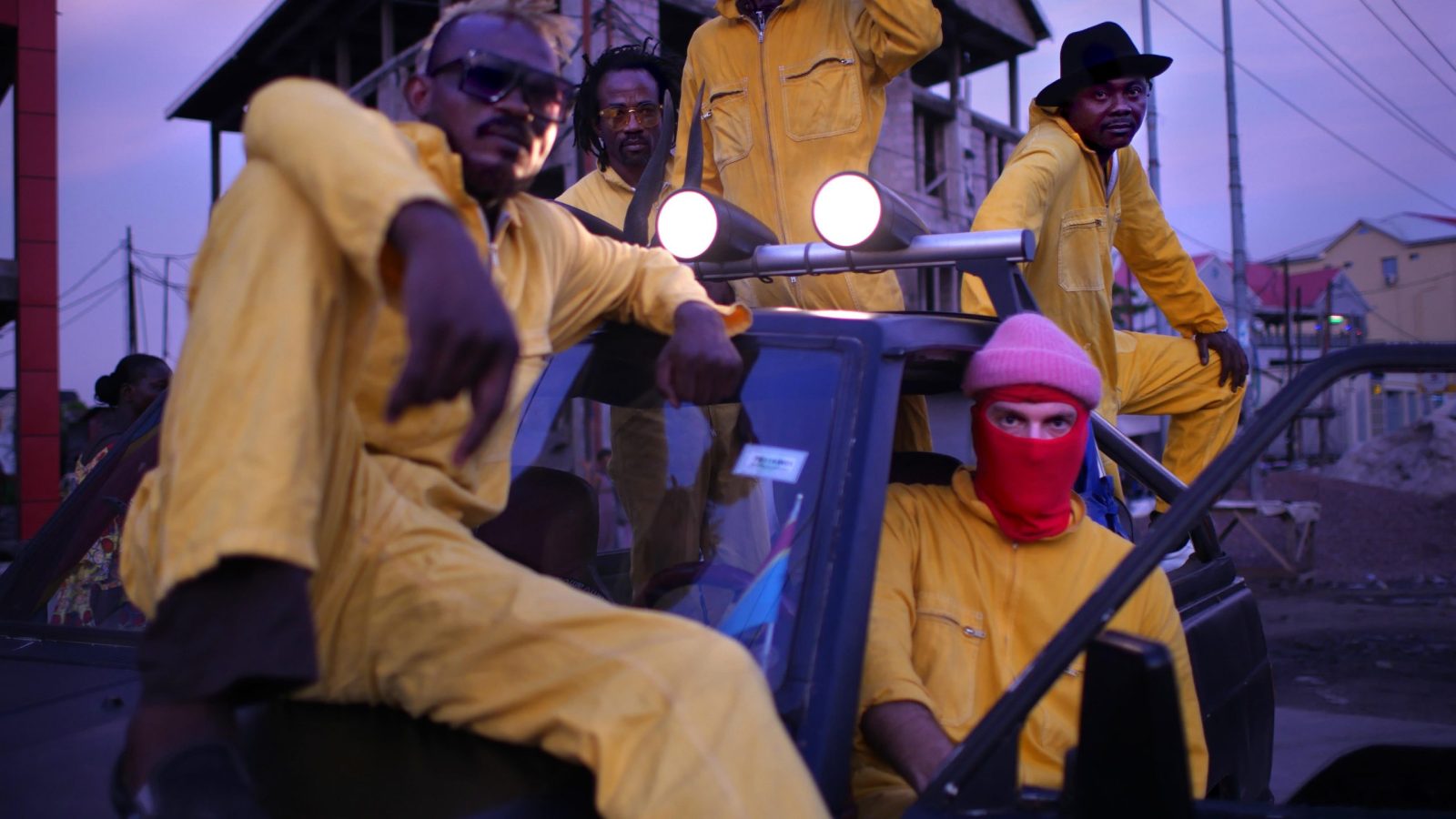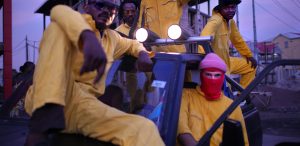
‘It’s a tough and magical place at the same time’ — KOKOKO! discuss creativity in Kinshasa, travelling and honing their sound
KOKOKO!’s sound is unique unto itself: a combination of bespoke instruments crafted from items of waste or obsolete technology, with electronic processing and beats, and delivered with raw punk energy. Featuring producer Débruit and musicians hailing from Kinshasa, the band is gaining a reputation as one of the world’s most persuasive live acts, not to mention an incredible recording band, as their debut LP Fongola confirms. Ahead of the band’s first performance at Band on the Wall on 27th November, we caught up with the group to discuss life in Kinshasa, the importance of their attitude toward music-making, and the places they hope music can take them.
The way you have transformed items of waste into bespoke instruments is a lesson to us all about the importance of resourcefulness and the need to better manage what we dispose of and how we dispose of it. What are the band’s thoughts about our attitude towards waste, and what we deem essential to be creative?
‘For us it’s not about the waste, Kinshasa has no plan for that and it’s got a population of 14 million. The idea came from having no instruments, the only free things in a city where nature has kind of disappeared is the trash, that’s why we started to compose our instrument with it, because it was free and we couldn’t afford regular instruments. It’s only after we started to think of the message because our action is the consequence of being in this tough situation, flooding as the gutters are full of plastic containers, that leads to health issues etc… it starts from wanting to create out of nothing but there’s definitely this hidden statement behind it.’
You have alluded to Fongola being recorded in makeshift studios in Kinshasa and Brussels. Can you tell us a bit more about the recording process: how you arranged the tracks and recorded the instruments, what gear you used, and any go-to production techniques that yielded great results?
‘Well Débruit and Makara who are two of the 3 musical entities of KOKOKO! were already doing electronic music. Débruit recorded all our improvisations together and worked a lot on it as at the beginning, we were playing 30 minute jams with no structure. He structured things and added his mysterious touch, and came back with the result and we kept building that way. Now we all know each other more in the band, Makara, the music instrument creators, Débruit, we spend more time together and we approach things differently, we have progressed in knowing what we want whether it’s for the record or the stage. This triangular dialogue (trialogue?) is very cool because you can get inspired and inspire all corners.’
For the benefit of people who have never been to Kinshasa or know little about the city, can you tell us about what it is like to live and create music there?
‘The city itself makes music, Kinshasa is the loudest capital in the world, I believe, with your eyes closed you can know who is around you and how far, nail varnish street sellers bang the little glass bottles, egg sellers have a sound with thick elastics, mobile phone credit is sold via loops made on megaphones, then the evangelical church bangs music in front of the club etc etc… Kinshasa is the third biggest African city, it is huge, as it stretches far and people live on the ground floor. People are original and eccentric, people want to stand out from that sonic and visual chaos, it’s a tough and magical place at the same time.’
We have seen some fantastic music and film come out of Kinshasa in recent years: Mbongwana Star’s debut album, Baloji’s award-winning short film Zombies, and your own music as well. Are there any other musicians, artists or filmmakers working in Kinshasa that you admire, and that we should know about?
‘Oh yes, we collaborate a lot with the body performers, Tickson, Yannos Majesticos, Makara’s dancers are amazing, we work together for the videos, Makoka is the choreographer. There is film makers like Paul Shemisi and Nizar and the list goes on…’
Music has taken you to some fascinating places so far. Where is the most interesting place the band have visited, and is there anywhere you’re yet to go, but hoping to visit?
‘Playing a sold out show in New York was crazy. Also, whenever we play in Brussels, it’s like riots, the police even came to shut the venue down the first time we played as it was crazy packed and explosive. We want to play more in Africa: we’ve had a lot of interest in Angola, Ivory Coast, Kenya, South Africa… we would also really like to play in Brazil where we have a lot of fans but haven’t been able to go yet.’







